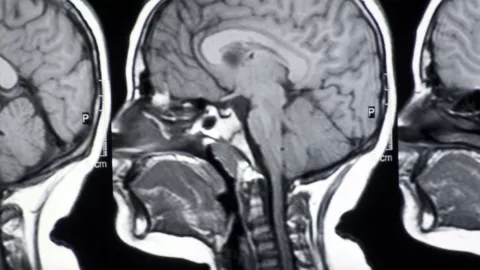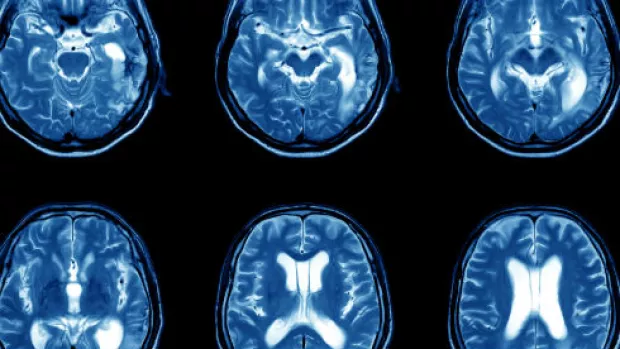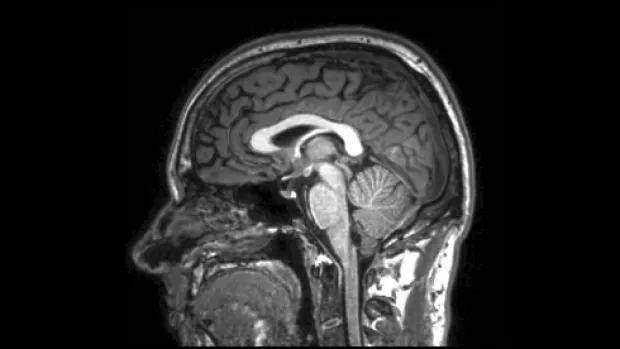
Under the microscope: MRI and MS progression
Magnetic Resonance Imaging (MRI) plays a vital role in how we diagnose and monitor MS. But it has potential in progressive MS research too.
MRI scans are a vital part of the diagnosis process for MS - over 90% of people with MS have their diagnosis confirmed using MRI.
MRI scans are also used in research.
In 2009, we funded the first ever MRI scanner solely dedicated to MS research, based at Queen Square MRI Centre in London.
Now, thoughts are turning to whether MRI can be used to predict MS progression and reduce uncertainty for people with MS. With our funding, the team at Queen Square are taking on this challenge.
Predicting MS progression
The results of a long-term study looking at progression in MS were announced at our research conference, MS Frontiers, last year.
The trial ran for 15 years and involved 164 people with clinically isolated syndrome (CIS). People with CIS have experienced one episode of neurological symptoms, and often go on to be diagnosed with MS.
Dr Wallace Brownlee, Professor Olga Ciccarelli and their team found that early spinal cord damage was a sign that people were much more likely to go on to develop secondary progressive MS. And having a spinal cord MRI scan not only helped with diagnosis, but gave an insight into the level of disability a person was likely to face in the future.
This work suggests that MRI scans could be used to give people with MS and their neurologists more insight into how their MS might progress. This would influence treatment choices and reduce uncertainty, which we know are very important to people with MS.
More sensitive scans
At the moment, MRI scans often aren’t sensitive enough to capture what’s happening to our nerve cells in progressive MS.
Professor Claudia Wheeler-Kingshott and her team have developed a faster, more sensitive MRI method. And they’re now assessing how well it works.
The study will involve 50 people with early stage secondary progressive MS and 20 volunteers without MS. Participants will be clinically assessed and then have an MRI scan of their brain and spinal cord. This will be repeated 18 months later. Claudia will use this data to see if the MRI scans relate to clinical progression, and if they can predict the course of MS. They hope this will help uncover better ways of managing progressive MS.
Markers for MS progression
Dr Declan Chard, clinical researcher at the National Hospital for Neurology and Neurosurgery in London, has also been investigating how MRI could be used to predict the long-term course of MS.
He’s been working with a group of 132 people with MS who have been followed for over 30 years, from their first diagnosis of CIS. Most of the group have never been on treatment.
Declan told us: “Surprisingly, we saw the group start to diverge. Many members of the group had developed secondary progressive MS, and were using a stick, walker or wheelchair. But a significant number of people (around a third) had not progressed. Over the years they had experienced fluctuations in symptoms, and they still had lesions on their scans, but they had low levels of disability after 30 years.”
Declan’s next steps will be to use this data to identify MRI markers that could help us to predict how a person’s MS might progress.
An international effort
We’re a member of the Progressive MS Alliance, a global network of MS charities that have united to speed up the development of treatments for progressive MS.
The Alliance is funding Dr Douglas Arnold, from McGill University in Canada, to identify biomarkers of MS progression using MRI. Dr Arnold is working in collaboration with scientists across the world, including Dr Chard and Professor Ciccarelli.
Looking to the future
We hope this MRI research will tell us more about how MS progresses, with the aim of decreasing uncertainty for people with MS and improving treatment options.
Finding effective treatments that slow, stop or reverse the accumulation of disability in MS is our key research priority.
This blog first appeared in Research Matters magazine. To receive Research Matters by post, email [email protected] to ask about subscription. You can also download the full issue for free.




